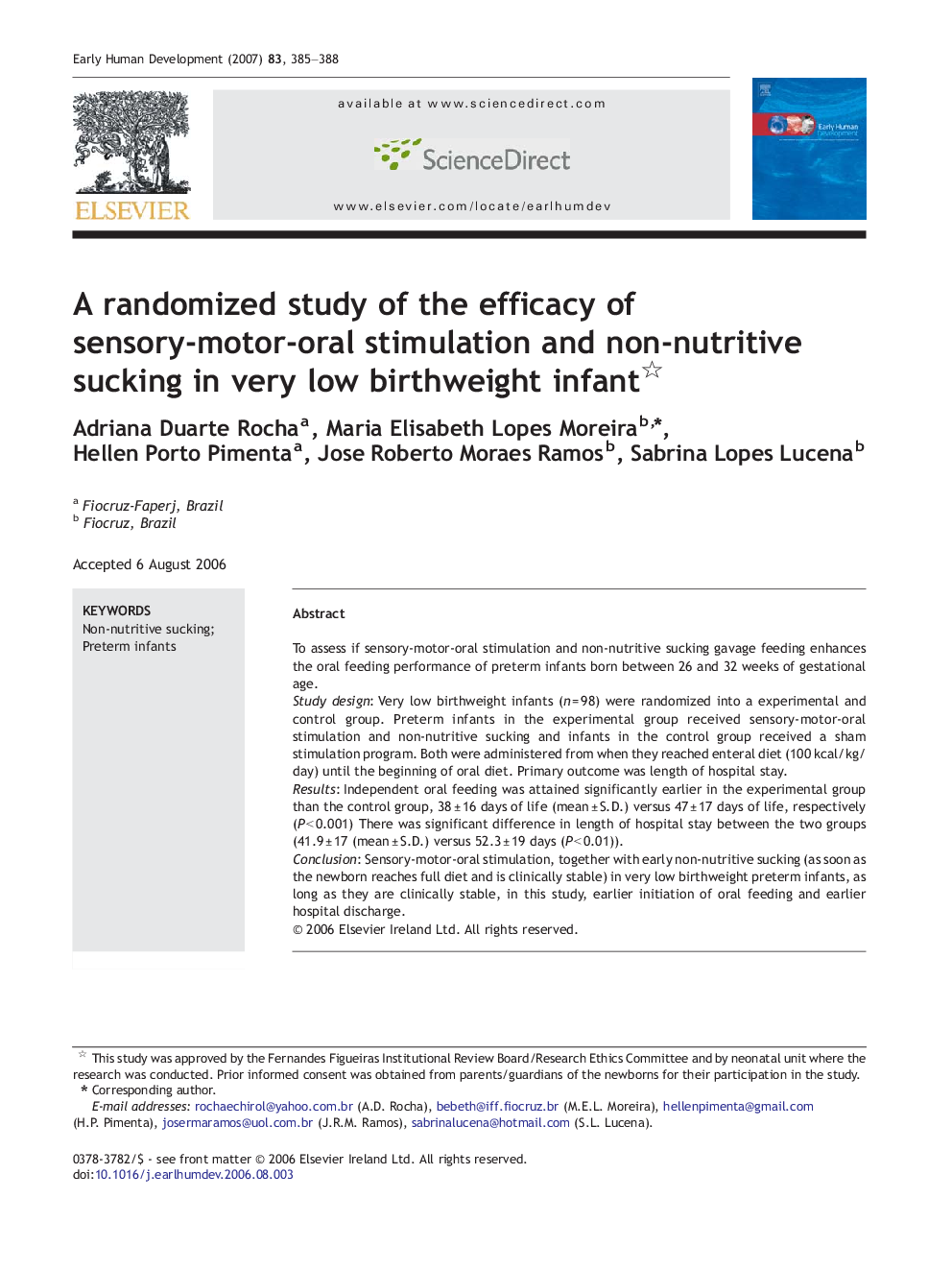| Article ID | Journal | Published Year | Pages | File Type |
|---|---|---|---|---|
| 3917723 | Early Human Development | 2007 | 4 Pages |
To assess if sensory-motor-oral stimulation and non-nutritive sucking gavage feeding enhances the oral feeding performance of preterm infants born between 26 and 32 weeks of gestational age.Study design:Very low birthweight infants (n = 98) were randomized into a experimental and control group. Preterm infants in the experimental group received sensory-motor-oral stimulation and non-nutritive sucking and infants in the control group received a sham stimulation program. Both were administered from when they reached enteral diet (100 kcal/kg/day) until the beginning of oral diet. Primary outcome was length of hospital stay.Results:Independent oral feeding was attained significantly earlier in the experimental group than the control group, 38 ± 16 days of life (mean ± S.D.) versus 47 ± 17 days of life, respectively (P < 0.001) There was significant difference in length of hospital stay between the two groups (41.9 ± 17 (mean ± S.D.) versus 52.3 ± 19 days (P < 0.01)).Conclusion:Sensory-motor-oral stimulation, together with early non-nutritive sucking (as soon as the newborn reaches full diet and is clinically stable) in very low birthweight preterm infants, as long as they are clinically stable, in this study, earlier initiation of oral feeding and earlier hospital discharge.
